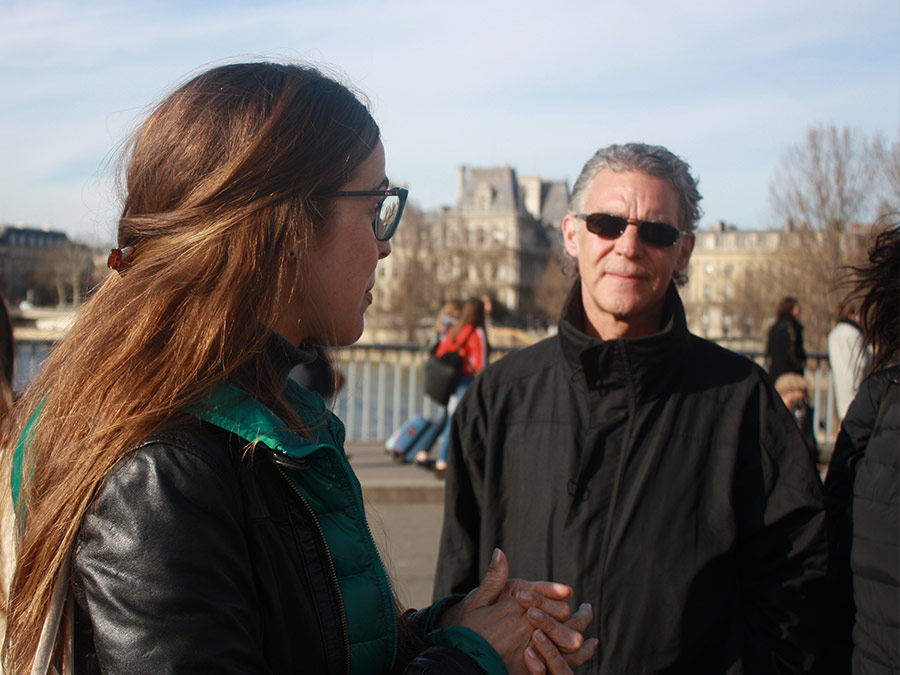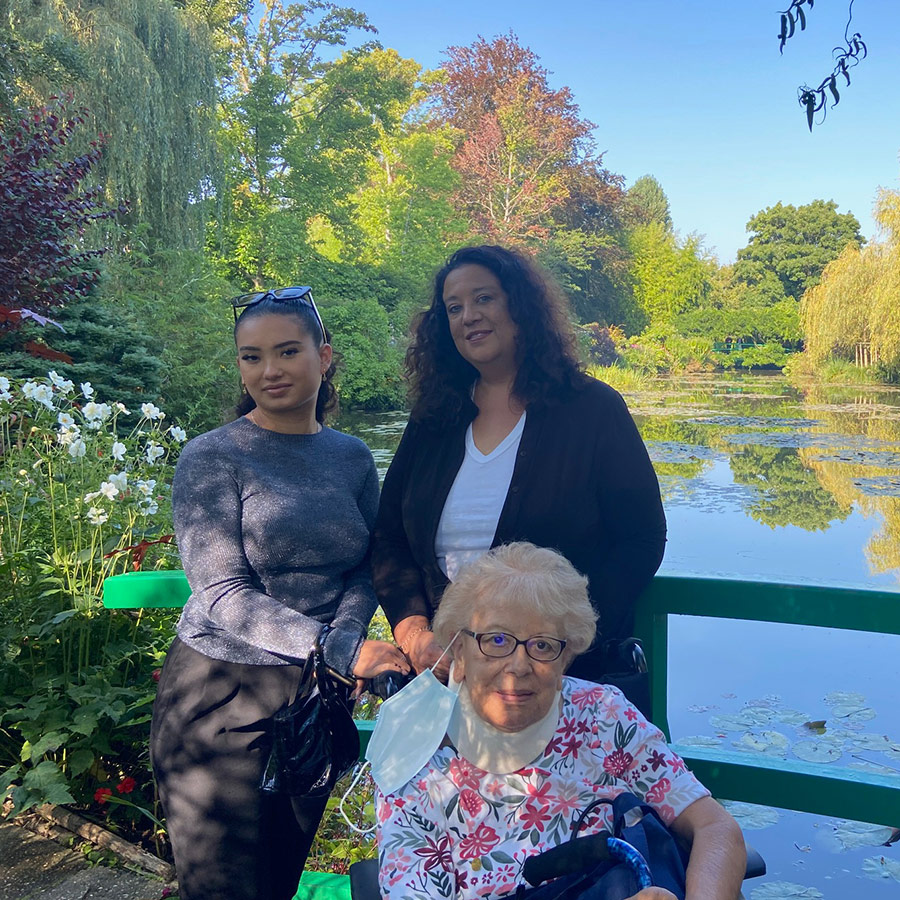Full article: AARP.org
05 May 2023 | by Cheryl Maguire
If you are considering traveling with your parents or an older family member, you might be wondering, Where do I start? There are a few things to consider when traveling with an older person. This step-by-step guide will help you to plan a trip so that everyone has a great time.
Step 1: Spend time with your parent before the trip
If you haven’t spent time with your parents recently, you might envision them with the same amount of energy and mobility they had when you were growing up. But as they aged, their ability to do things may have changed.
Austin Naughton, 50, travels regularly with his 92-year-old father and 85-year-old mother. On a recent trip, his siblings, who hadn’t seen their parents in a while, were surprised at how much care they required. “They’re not incapacitated. They just needed more care than I think my siblings had been aware of,” says Naughton. If you can spend time with them before your vacation, then you will get a better sense of what they can handle while traveling.

Step 2: Discuss ideas for the vacation
You and your parent can discuss all the particulars of a vacation like the destination, time of year, cost and length of the trip. This will ensure everyone is on the same page and that all will have a fun time.
“You have to include your parents in the discussion so they have a sense of agency. And, and it’s an exciting part of the phase,” says Geneviève Spicer, founder of Paris for Seniors. She regularly travels with her 85-year-old mother.
Spicer also recommends planning your trip at least six months in advance. “The most important thing when planning a trip with your elderly parents is preproduction. You have to start early,” she says. This will give you time to research and provide you with more availability options for accommodations, tour companies or airfare.

Step 3: Research accommodations, tour guides and restaurants
Once you have figured out the details of your trip, you can research lodgings, tour guides and restaurants. If your parent has accessibility needs or they aren’t easily mobile, it’s important to make sure the places are able to accommodate their needs. Naughton also tries to duplicate routines that his parents have at home. “What is it that they need at home that can be replicated at a hotel?” he asks.
Naughton will book a hotel that offers breakfast so that his parents can take their medications without leaving the hotel. He also books a first-floor room that has a shower without a bathtub that they would need to step over. Another important feature is a sofa bed or lounge chair so that his parents can sit in it if their backs are feeling sore.
Another reason to book a first-floor room is when a hotel doesn’t have an elevator. Jill Schildhouse, 46, a freelance journalist, travels regularly with her parents, both 69. She recently stayed with her mom at a boutique hotel without an elevator, so she booked a ground-floor room. Even though her mom doesn’t have accessibility issues, climbing a lot of stairs would have been challenging for her.
Using a tour guide at your destination is a great way to sightsee, but it’s important to make sure they offer accessibility features and are willing to move at a slower pace if necessary. Nathan Fluellen, host of the Wondrium travel series Discovering West Africa, suggests using tour guides. He has traveled to seven continents with his 76-year-old mother and says that using a tour guide “alleviates the work or the stress of trying to figure out planning every single part of the trip.”
Schildhouse also likes to use tour guides but sometimes they might move at a fast pace. During a recent trip with a tour guide, “My mom pulled her aside and was, like, ‘Hey, just an FYI. You seem very energetic, which is great, but I am not able to walk as fast as you.’”
Some older adults may have dietary restrictions or other food-related issues, so you should research the restaurants in the area based on your parents’ needs. “We have to be careful with diet, and we’re not eating anything that’s going to be too crazy,” says Naughton.

The travel phase
Step 4: What to pack
As you age, your memory can fade, so creating written packing checklists for your parents is imperative. “I think my parents have, like, a rudimentary checklist or maybe a mental checklist. But as people age, that checklist is less and less reliable,” says Naughton. Spicer also recommends including on the packing list any “creature comforts that they might have.”
You should also include any prescription and over-the-counter medications along with any other needs like incontinence underwear and multiple changes of clothes. “Bring extra medicine, just in case,” advises Fluellen. If you’re flying, these should be packed in the carry-on bag in case the checked bag gets lost.
Naughton also highly recommends a rollator walker for older adults, even those who don’t have accessibility needs. The rollator walker can help with maintaining your balance, especially if you are walking long distances. “If my parents fall, it’s different than if a teenager falls,” explains Naughton. “A broken arm on a young person is very different than the broken arm on an elderly person.” Also, some rollator walkers have a built-in seat.

Step 5: Traveling to the airport
If your trip involves flying, then you will have to prepare for traveling to the airport and any accessibility needs. When you have accessibility needs, “you want to get pre-boarding and disembarkation assistance,” says Spicer. Typically, you can do this when you book the airfare online, but you might need to call to request it.
Since you don’t want to miss your flight, you will need to allow for a lot of time to arrive at the gate. “It’s stressful to get through airports,” says Naughton. He explains that one way to alleviate some of that stress is by having plenty of time to get to the airport. When possible, Naughton books a “park, stay and fly,” which is when a hotel near the airport offers a deal on the hotel stay and parking so that you can stay near the airport the night before your trip.
Fluellen agrees with the need for pacing. “Always plan ahead and then don’t do things last minute,” he says.

Step 6: Build in downtime during your trip
During a recent trip with her mom, Schildhouse had a packed schedule. “I watched my mom struggle a little bit the first few days, not being used to such a grueling pace and doing things all day long,” she says. She recommends incorporating scheduled downtime or breaks during your trip.
It can be a lot of work traveling with an older person, but taking a trip with them can be a bonding experience that will create lasting memories for both of you.

